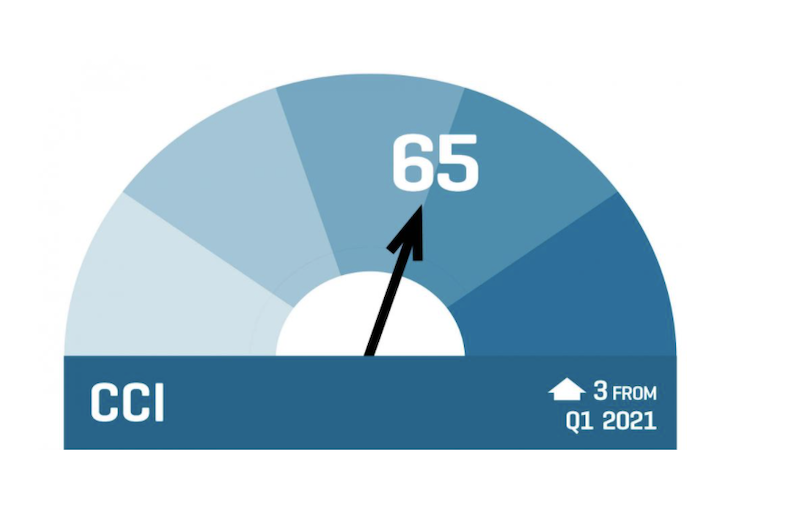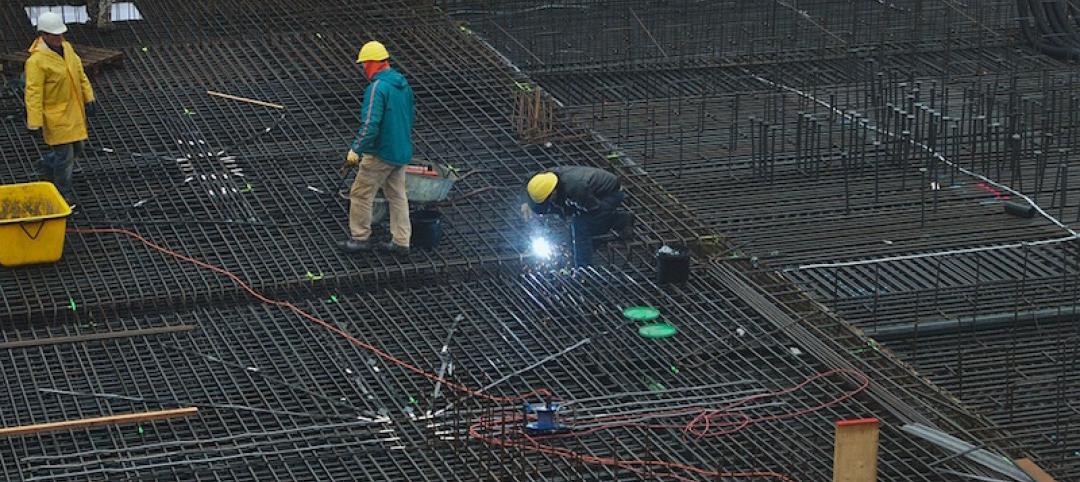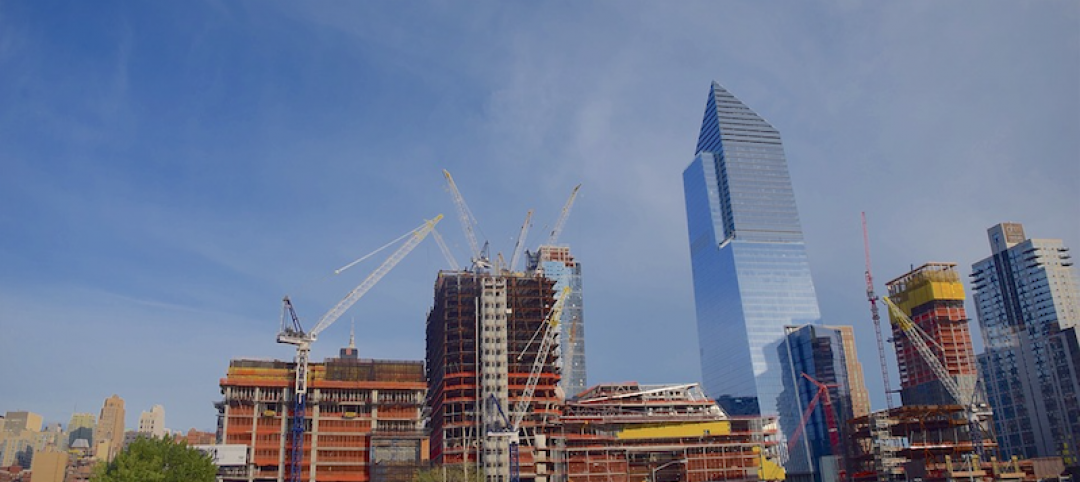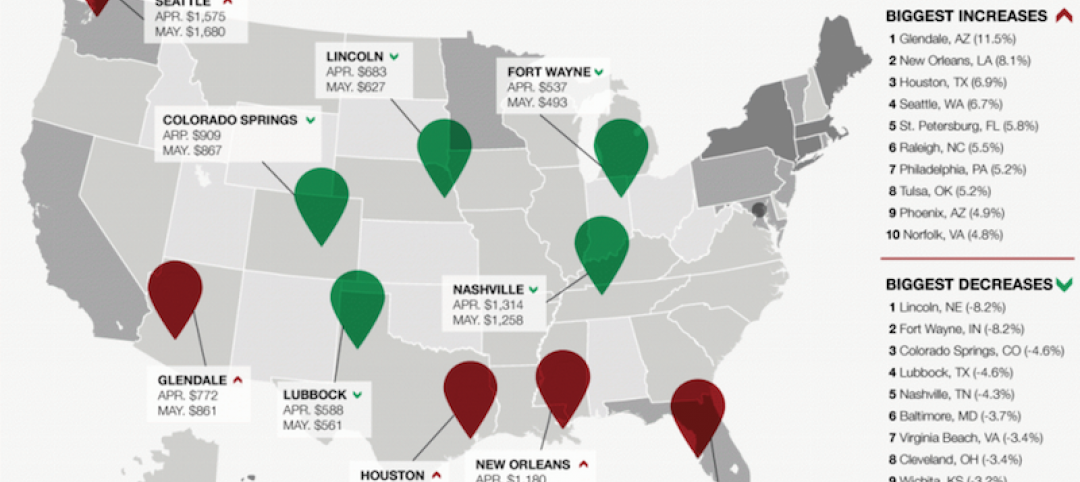Contractors continue to face a shortage of building materials like lumber and steel, while cost fluctuations for the building products are having increasing impact on business, according to second quarter data from the U.S. Chamber of Commerce Commercial Construction (Index). This quarter, 84% of contractors are facing at least one material shortage. Almost half (46%) of contractors say less availability of building products has been a top concern lately, up from 33% who said the same last quarter.
Despite the materials challenges, the overall Index score rose three points to 65 (its highest reading since a score of 74 in Q1 2020 ahead of the pandemic) and contractors are optimistic on outlook for revenue expectations, new business
— 89% of contractors report a moderate to high level of confidence in new business opportunities in the next 12 months, up from 86% in Q1. Those indicating a high level of confidence jumped 10 points to 34% from last quarter.
— Over half (52%) of contractors say they will hire more employees in the next six months, up from 46% in Q1.
— More contractors (39%) expect
— For the first time in a year, the percentage of contractors planning to spend more on tools and equipment in the next six months (44%) is higher than those who say they will not spend more (42%).
“Businesses are experiencing a great resurgence as vaccines allow the economy to fully reopen. Rising optimism from the commercial construction industry reflects what we’re seeing across the broader economy,” said U.S. Chamber of Commerce Executive Vice President and Chief Policy Officer Neil Bradley. “However, contractors continue to face challenges navigating materials shortages and
Materials Shortages Worsen
Most (84%) contractors say they face at least one material shortage, up from 71% in Q1. One in three (33%) are experiencing a shortage in wood/lumber, and 29% are seeing a shortage of steel. Of those contractors experiencing shortages, 46% say they are having a high impact on projects, up from 20% saying the same in Q1.
Additionally, almost all (94%) contractors say cost fluctuations are having a moderate to high impact on their business, up 12 percentage points from Q1 and up 35 points year-over-year. Wood/lumber and steel are the products of highest concern.
Contractors Face Worker Shortage Crisis
In the midst of a deepening workforce crisis, finding skilled labor continues to be a challenge for contractors. This quarter, 88% report moderate to high levels of difficulty finding skilled workers, of which, nearly half (45%) report a high level of difficulty. Of those who reported difficulty finding skilled labor, over a third (35%) have turned down work because of skilled labor shortages.
Most (87%) contractors also report a moderate to high level of concern about the cost of skilled labor. Of those who expressed concern, 64% say the cost has increased over the past six months, and more than three-quarters (77%) expect it to continue to increase over the next year.
Trade and Tariff Concerns are Up
This quarter, contractors expressed increasing concern about the potential effect of tariffs and trade wars on access to materials over the next three years.
More (45%) say steel and aluminum tariffs will have a high to very-high degree of impact, up from 35% in Q1. Forty percent now say new construction material and equipment tariffs will have a high to very-high degree of impact, up from 29% in Q1. And 30% expect high impacts from trade conflicts with other countries, up from 19% in Q1.
About the Index
The U.S. Chamber of Commerce Commercial Construction Index is a quarterly economic index designed to gauge the outlook for, and resulting confidence in, the commercial construction industry. The Index comprises three leading indicators to gauge confidence in the commercial construction industry, generating a composite Index on the scale of 0 to 100 that serves as an indicator of health of the contractor segment on a quarterly basis.
The Q2 2021 results from the three key drivers are:
— Revenue: Contractors’ revenue expectations over the next 12 months increased to 61 (up four points from Q1).
— New Business Confidence: The overall level of contractor confidence increased to 62 (up three points from Q1).
— Backlog: The ratio of average current to ideal backlog rose three points to 72 (up three points from Q1).
The research was developed with Dodge Data & Analytics (DD&A), the leading provider of insights and data for the construction industry, by surveying commercial and institutional contractors.
Visit www.
Related Stories
Market Data | Jun 21, 2017
Design billings maintain solid footing, strong momentum reflected in project inquiries/design contracts
Balanced growth results in billings gains in all sectors.
Market Data | Jun 16, 2017
Residential construction was strong, but not enough, in 2016
The Joint Center for Housing Studies’ latest report expects minorities and millennials to account for the lion’s share of household formations through 2035.
Industry Research | Jun 15, 2017
Commercial Construction Index indicates high revenue and employment expectations for 2017
USG Corporation (USG) and U.S. Chamber of Commerce release survey results gauging confidence among industry leaders.
Market Data | Jun 2, 2017
Nonresidential construction spending falls in 13 of 16 segments in April
Nonresidential construction spending fell 1.7% in April 2017, totaling $696.3 billion on a seasonally adjusted, annualized basis, according to analysis of U.S. Census Bureau data released today by Associated Builders and Contractors.
Industry Research | May 25, 2017
Project labor agreement mandates inflate cost of construction 13%
Ohio schools built under government-mandated project labor agreements (PLAs) cost 13.12 percent more than schools that were bid and constructed through fair and open competition.
Market Data | May 24, 2017
Design billings increasing entering height of construction season
All regions report positive business conditions.
Market Data | May 24, 2017
The top franchise companies in the construction pipeline
3 franchise companies comprise 65% of all rooms in the Total Pipeline.
Industry Research | May 24, 2017
These buildings paid the highest property taxes in 2016
Office buildings dominate the list, but a residential community climbed as high as number two on the list.
Market Data | May 16, 2017
Construction firms add 5,000 jobs in April
Unemployment down to 4.4%; Specialty trade jobs dip slightly.
Multifamily Housing | May 10, 2017
May 2017 National Apartment Report
Median one-bedroom rent rose to $1,012 in April, the highest it has been since January.

















